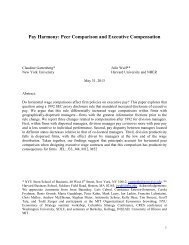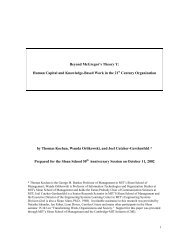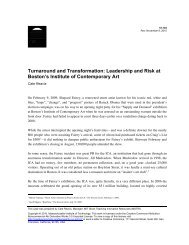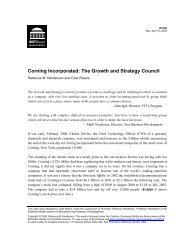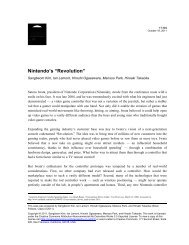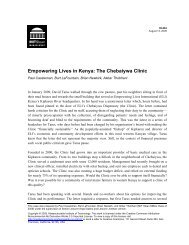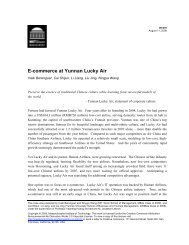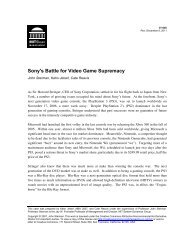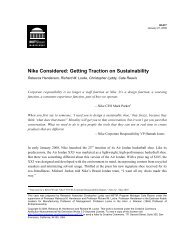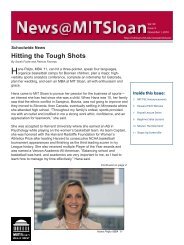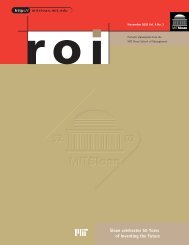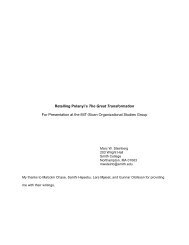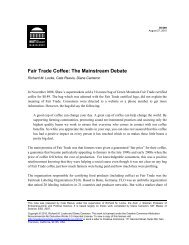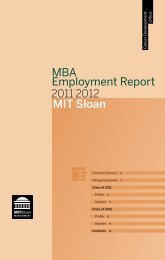Understanding earnings quality - MIT Sloan School of Management
Understanding earnings quality - MIT Sloan School of Management
Understanding earnings quality - MIT Sloan School of Management
You also want an ePaper? Increase the reach of your titles
YUMPU automatically turns print PDFs into web optimized ePapers that Google loves.
capital accruals as a proxy. Perry and Williams (1994), however, estimate discretionary accruals<br />
using the Jones model and find lower discretionary accruals prior to the buyout relative to an<br />
industry and size matched control sample for 175 MBOs from 1981-1988. Results using outcome-<br />
based measures <strong>of</strong> <strong>earnings</strong> management such as AAERs and restatements also suggest that capital<br />
raising activities are associated with <strong>earnings</strong> management (Dechow, <strong>Sloan</strong> and Sweeney, 1996;<br />
Efendi, Srivastava, and Swanson, 2007).<br />
Two studies infer capital market incentives for accounting choices. Bowen, Davis, and<br />
Rajgopal (2002) find that internet firms with greater cash burn rates, which they use as a proxy for<br />
external financing needs, are more likely to report advertising barter arrangements on the gross<br />
basis on the income statement, which is preferable for managers who believe they are being<br />
evaluated based on revenues. Lang, Raedy, and Yetman (2003) infer capital market incentives from<br />
cross-listing status and document differences in multiple proxies for EQ across cross-listed firms and<br />
a matched sample <strong>of</strong> firms from the same country. 63 Cross-listed firms appear to engage in less<br />
<strong>earnings</strong> management (measured by <strong>earnings</strong> smoothing, accruals, and frequency <strong>of</strong> small positive<br />
<strong>earnings</strong>), report more conservative <strong>earnings</strong> (measured by timeliness <strong>of</strong> loss recognition), and have<br />
higher ERCs. The differences are caused by both changes around cross-listing and differences in<br />
accounting <strong>quality</strong> before listing. Ndubizu (2007) similarly finds that foreign firms appear to boost<br />
accruals at the time <strong>of</strong> cross-listing their stock in the U.S., however, he finds no differences between<br />
firms that raise capital at the time <strong>of</strong> cross-listing and a control group <strong>of</strong> cross-listing firms that do<br />
not. Finally, Dietrich, Harris, and Muller (2000) find that firms make accounting method choices<br />
regarding fair value estimates <strong>of</strong> investment properties to boost <strong>earnings</strong> and time asset sales to help<br />
smooth <strong>earnings</strong> before raising debt.<br />
63 The <strong>quality</strong> metrics are measured for both samples based on accounting data reported in local markets using locally<br />
generally accepted accounting principles (GAAP).<br />
110



